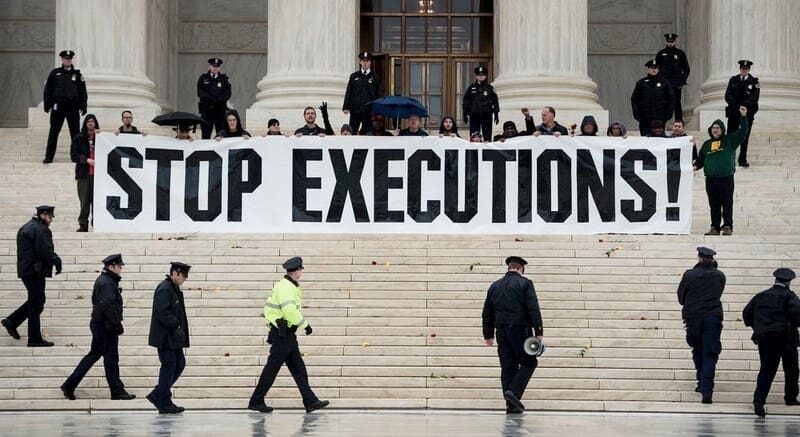Cliff Notes – Global executions reach highest figure in almost a decade
- Iran, Saudi Arabia, and Iraq were responsible for 90% of recorded executions in 2024, with Iran leading at 972 executions, a significant increase from the previous year.
- Amnesty International identified China as the “world’s lead executioner,” with thousands executed there, while political dissent suppression was a main factor for execution spikes in Saudi Arabia and Iran.
- Despite a rise in executions, a global trend towards abolition continues, with 145 countries having abolished the death penalty and significant reforms observed in places like Malaysia and Zimbabwe.
Global executions reach highest figure in almost a decade
Iran, Saudia Arabia and Iraq accounted for 90% of the recorded cases and were responsible for the steep spike. Iran topped the list. It put at least 972 people to death, up from 853 the year before.
In Saudi Arabia figures doubled to at least 345 — the most ever recorded for the country by the human rights watchdog Amnesty International. In Iraq, the death penalty was implemented 63 times, almost a quadrupling of numbers in comparison to 2023.
Amnesty International, however, named China as the “world’s lead executioner” in its annual report, saying that the information available indicated that thousands had been executed there. The country refuses to disclose data. The NGO also suspects North Korea and Vietnam of extensively resorting to the death penalty.
The silencing of dissent
Saudi Arabia has seen a steep escalation in executions despite Crown Prince Mohammad bin Salman’s modernization agenda and his pledges to curb their use. Amnesty International said the crushing of political dissent was a major motive.
The NGO said Saudi authorities had continued to weaponize the death penalty to punish nationals from the country’s Shi’a minority who supported “anti-government” protests between 2011 and 2013.
In Iran, there were also two more executions in connection with the nationwide protests sparked by Mahsa Amini’s death in police custody in 2022. One was 23-year-old Mohammad Ghobadlou, a protester with a long-term mental health condition.
“Those who dare challenge authorities have faced the most cruel of punishments, particularly in Iran and Saudi Arabia, with the death penalty used to silence those brave enough to speak out,” said AI Secretary General Agnès Callamard.
Drugs crimes
In Malaysia, however, some 1,000 people who were on death row — many on drug charges — have been reprieved as a result of reforms set in motion in 2023. The country removed mandatory capital punishment for crimes including trafficking.
The outlier, the United States
The United States remains the outlier in Western democracies in its use of the death penalty. While there was only a slight rise in figures overall in the US in 2024 from 24 to 25 executions, there were concerning trends, according to Amnesty International.
“The figures speak of very low historical totals both when it comes to executions and the sentences, however, last year we also saw four states resuming executions, South Carolina, Georgia, Utah and Indiana. That was deeply worrying because these were states where they had not been carried out for several years,” said AI researcher Sangiorgio.
In Alabama, the number of executions doubled and included the use of nitrogen gas. UN monitors have said death by suffocation with nitrogen hypoxia could amount to torture.
Nonetheless, signs of hope
Despite the alarming spike in executions in 2024, the NGO said only 15 countries were known to have carried out the death penalty — the second consecutive year that the figure has been that low. “This signals a shift from this cruel, inhuman and degrading punishment,” said Callamard. “It’s evident that states that retain the death penalty are an isolated minority,” she added.
A total of 145 countries have now abolished the death penalty in law or practice. And for the first time, two-thirds of the UN General Assembly voted in favor of a moratorium on the use of the death penalty.
In 2024, Zimbabwe signed into law a bill that abolished the death penalty, while retaining the right to reinstate it in the case of a state of emergency. Some 60 people are expected to have their death sentences commuted. Six other African countries have taken similar steps since 2021.
Death penalty expert Chiara Sangiorgio hailed the trend towards abolition in Africa. “Overall, the story in Africa has been a success story, a story of hope, of leadership when it comes to human rights and not buying into the narrative of the death penalty as the magic fix to crime and to problems,” she said.


